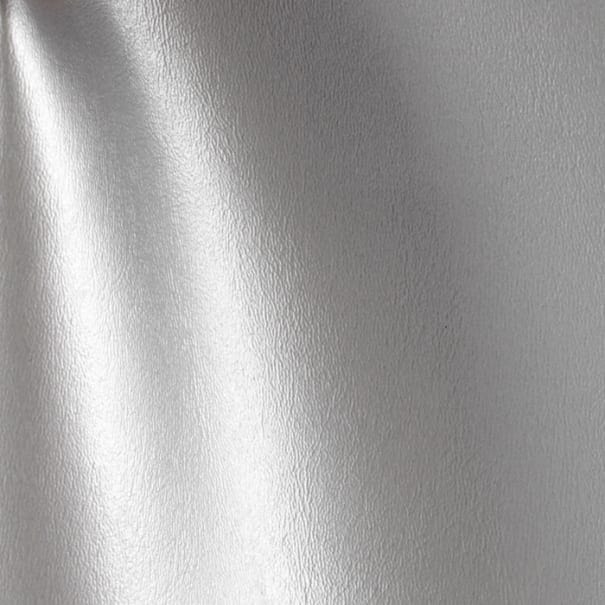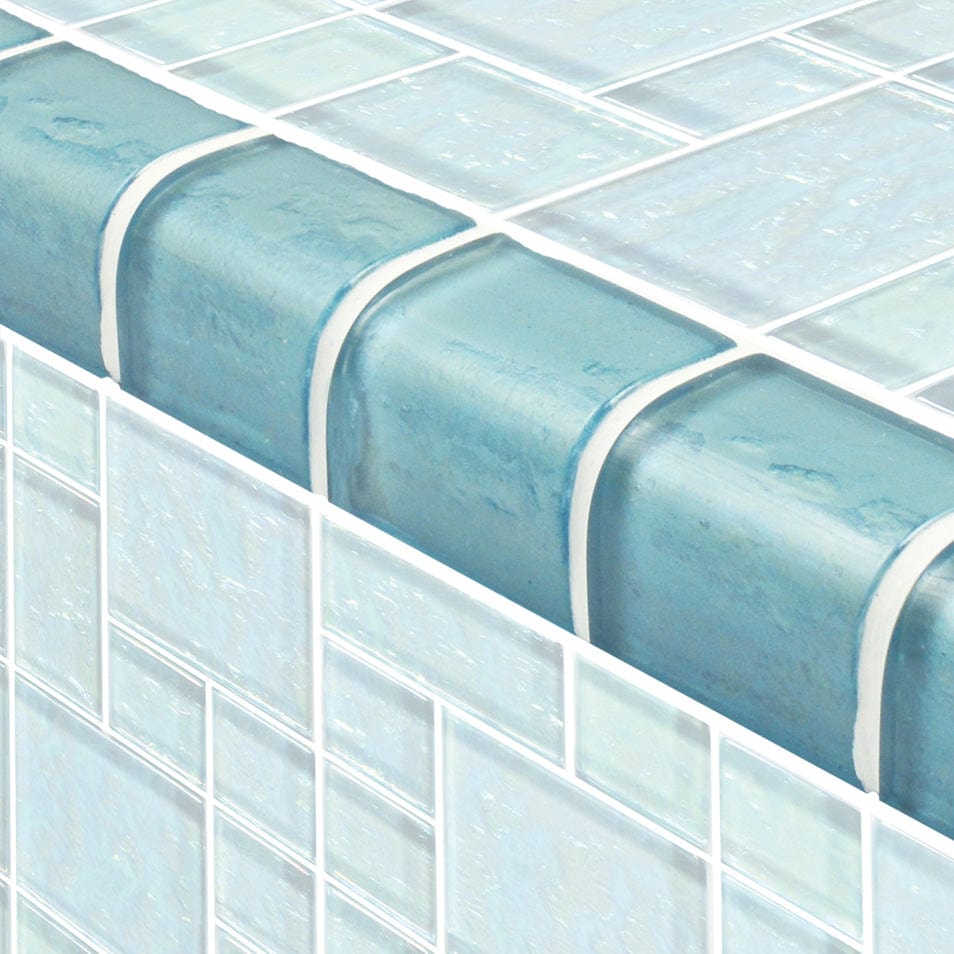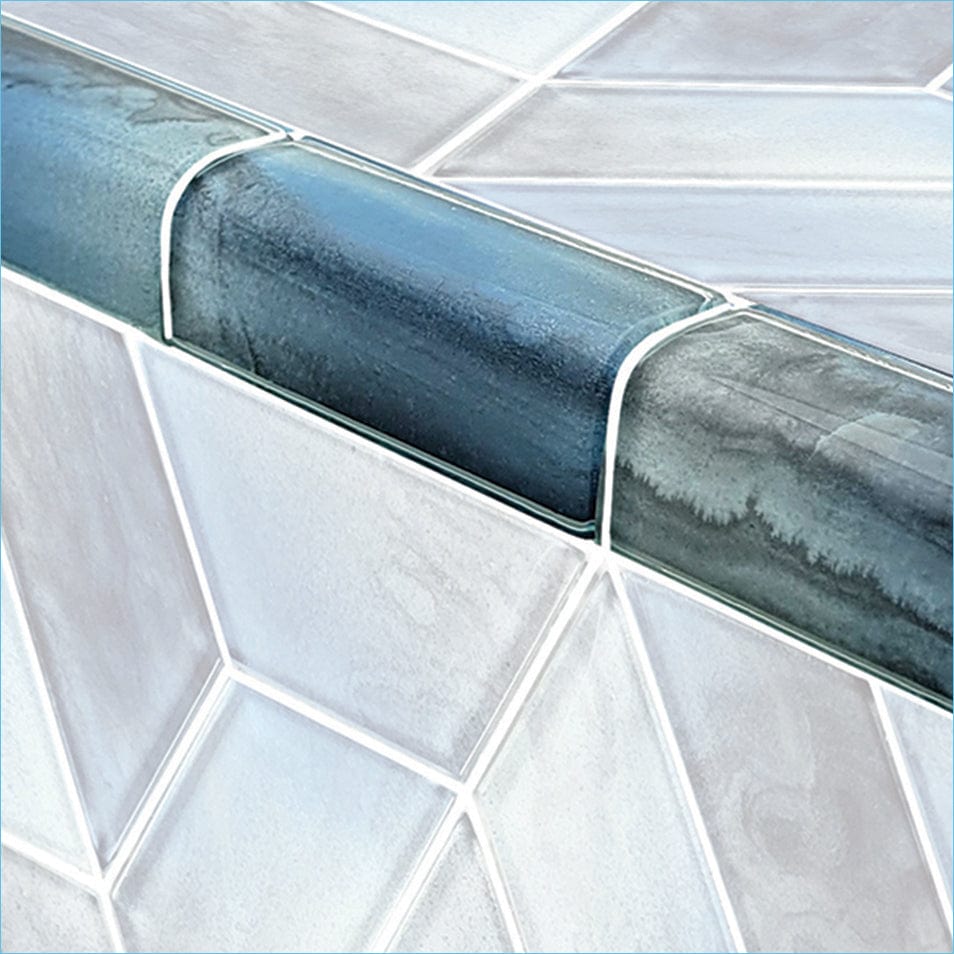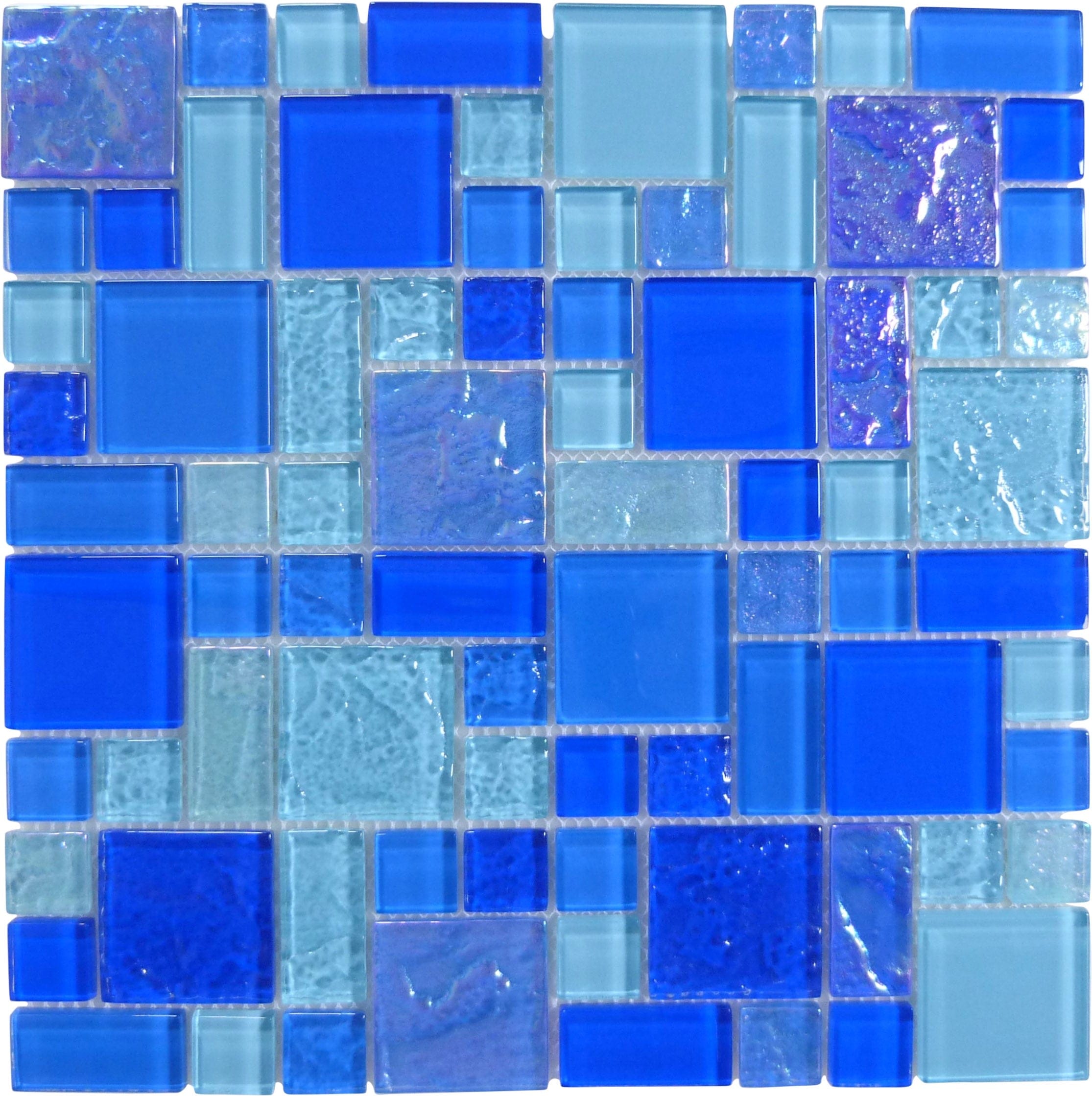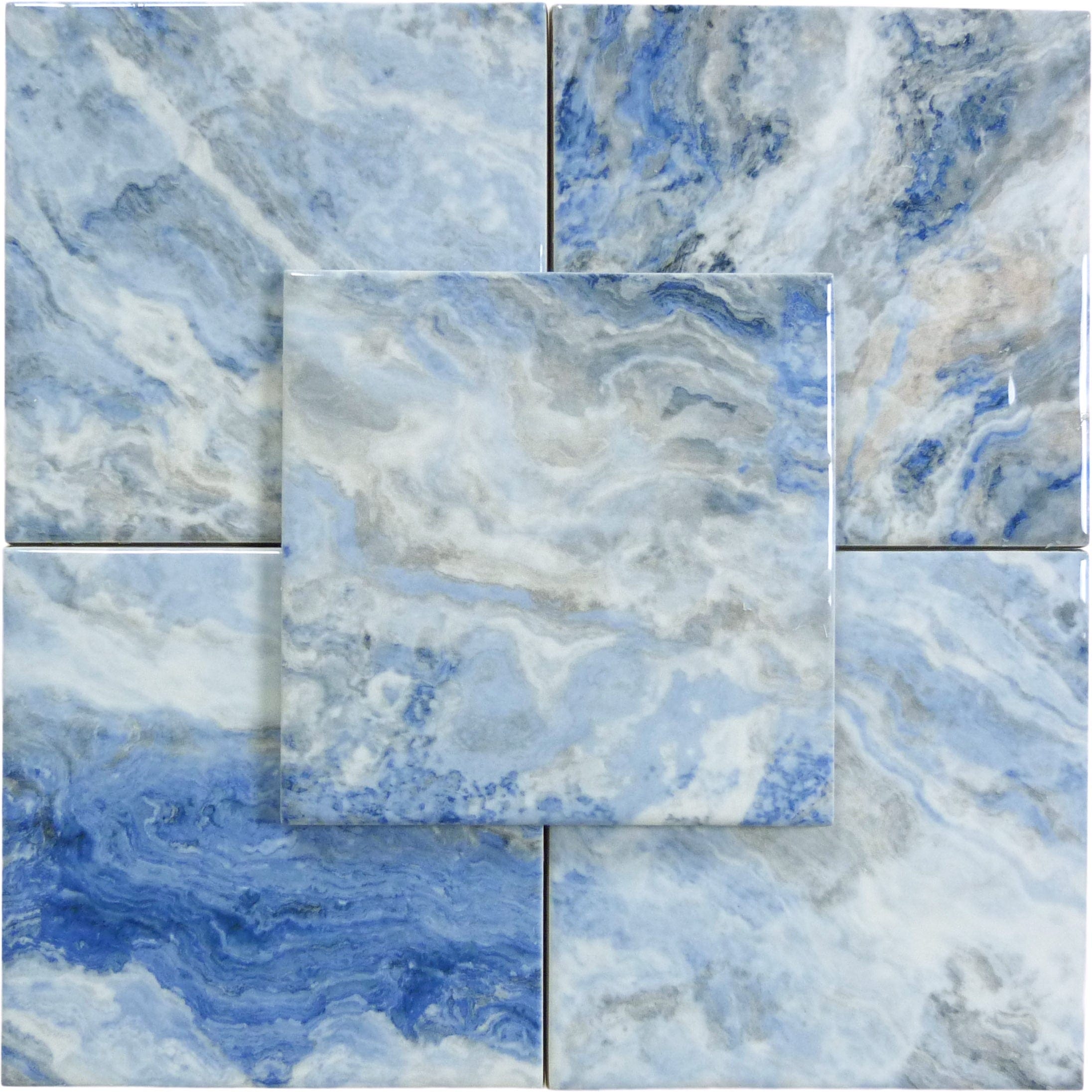
The history of porcelain floor tiles can be traced back to ancient China during the Chang Dynasty (618-907 AD). During this time, porcelain tiling was used to decorate walls, such as the iconic Porcelain Tower of Nanjing. Fast-forward to today: The international porcelain tile market is valued at an impressive $258.3 billion (USD) and is projected to reach $332.6 billion (USD) by 2032.
Why has porcelain tile remained a favorite for centuries? Its enduring popularity is due to its unrivaled benefits, including durability, ease of maintenance, and ability to enhance a home’s value. Used extensively in residential and commercial spaces, particularly bathrooms and kitchens, these versatile tiles can transform virtually any room with their timeless beauty and functionality.
Benefits of Porcelain Floor Tile
If you’re considering investing in floor tile made of porcelain, take a moment to consider the many advantages of this option.
Durable
In all our floor tile collections, porcelain tiles, not stone or marble, are the most durable. Crafted from dense clay and fired at extremely high temperatures, their resistance to stains and chemicals makes them an extremely popular choice for homes and commercial spaces such as institutional buildings, shopping malls, hotels, and more.
While some people may find porcelain tiles like our Bengala Camel Brown 9x47 Matte Porcelain Tile a bit firm for extended walking or standing, their unmatched resilience, rarely requiring repairing or replacement, sleek appearance, and adaptability to look as good as new, even under heavy use, have earned them rave reviews.

Easy to Maintain
Floor tiles made of porcelain, like our Vincenzia Royale Camilia Brown 6x6 Matte Porcelain Tile, are extremely easy to clean. Just a quick sweep with a broom or a wipe with soap and water is all it takes to keep them looking pristine. Harsh cleaners aren’t necessary, adding to their appeal in high-traffic areas.

Water-Resistant
If you’re debating ceramic vs. porcelain floor tiles, consider this: porcelain flooring, like our Miami Hexagon Blue 9x10 Matte Porcelain Tile, is highly resistant to water, with an absorption rate typically below 0.5%. Thus, it is considered the best material for floor tiles in moisture-prone areas like bathrooms, kitchens, and outdoor spaces. Their resistance to water and stains also makes them incredibly low-maintenance—a quick wipe or sweep keeps them clean and looking great.

By comparison, ceramic floor tiles are also durable but have a higher water absorption rate, usually between 3% and 7%, making them less water-resistant.
Healthy
Consider this if you’re contemplating installing carpet versus tile flooring in your home. Porcelain tiles on floors such as our Seattle Hexagon White 9x10 Matte Porcelain Tile are the first choice for creating a healthy, hygienic environment, thanks mainly to their zero-toxicity and hypoallergenic properties. Free from petroleum derivatives, PVCs, formaldehyde, and volatile organic compounds (VOCs), porcelain flooring tiles are made in ovens exceeding 1200 ℃, eliminating any organic residues. Unlike other flooring materials such as vinyl tiles, porcelain is non-polluting, odorless, and safe for humans, pets, and the environment.

Their dense, non-porous surface prevents the accumulation of allergens such as dust, mites, bacteria, mold, and fungi, making them a good choice for individuals with asthma or allergies. Completely waterproof and resistant to bacterial growth, porcelain tiles are among the most hygienic materials available. They are perfect for areas that demand high cleanliness levels, such as kitchens, bathrooms, and healthcare settings.
Safe
If you want "safe" kitchen floor ideas, consider installing porcelain floor tiles. They are resistant to fire, frost, and extreme weather. They can be tailored with finishes, including matte, such as our Evermore Celestial Sky Blue 3x12 Porcelain Tile, textured or grip, to enhance slip resistance for added safety. This makes them perfect for pool decks and bathroom flooring.

Made without organic substances and plastics, porcelain floor tiles remain inert under high temperatures, making them non-combustible. Simply put, they won’t show any damage from a cigarette, flame, boiling liquid, or embers.
Versatile
Porcelain is a versatile floor tile in many sizes, colors, shapes, and designs, such as our Retro Neuve Fleur Noir 8x8 Matte Porcelain Tile or our mosaic styles. It’s one of many reasons so many people generally opt for tile. It can mimic the look of wood, marble, stone, granite, or even steel, making it virtually impossible to tell if it’s a tile at first glance. This flexibility means a porcelain floor has endless commercial and residential applications, from entryways to restaurant kitchen backsplashes. So whether you want to create a cozy, warm atmosphere or a sleek, modern vibe. With so many options, installing porcelain floor tile is perfect for creating personalized and unique spaces.

Porcelain Tile Applications
Thanks to their many benefits, porcelain floor tiles have many applications. Here are the best uses for this covering.
- Floors: It bears repeating that porcelain floor tiles are ideal for high-traffic areas such as living rooms, hallways, kitchens, and bathrooms, whether residential or commercial.
- Walls: Porcelain tiles can add elegance to feature walls, fireplaces, bathroom backsplashes, and kitchen accent walls.
- Shower Surrounds: Porcelain tile is perfect for shower walls and surrounding areas thanks to its water-resistance and mold-resistant capacities.
- Countertops: With resistance to scratches, heat, stains, and heat, porcelain tiles are an unbeatable choice for kitchen and bathroom countertops, providing functionality and style.
- Outdoor Facades: Porcelain tiles are frost-resistant and weatherproof, making them ideal for cladding exterior walls and facades. They add durability and aesthetic appeal.
Disadvantages of Porcelain Floor Tile
A Heavy Floor Tile
While floors made of porcelain can mimic the look of many other materials, they are among the heaviest floor tiles available. Due to their weight, laying porcelain floor tiles may not be suitable for upper-story rooms unless your home is specifically built to handle the extra stress. If you’re considering porcelain tiles in such areas, checking if your structure can support the additional load is essential. Additionally, because of their weight, porcelain tiles are generally too heavy to install over existing vinyl and wooden flooring, as the subfloor may not provide the necessary support in both cases. You might opt for a lighter alternative, like ceramic tile.
Time-Consuming Installation
If you’re a DIY enthusiast and planning to install porcelain floor tiles yourself, there are a few important things to consider. First, installing porcelain tiles is a time-intensive task that requires patience and precision. Because of their hardness and density, these tiles demand specialized saws to make clean cuts without chipping or damaging them. Additionally, the weight of porcelain tiles can make the job physically demanding, especially when handling large tiles or working in tight spaces.
To help you get started, check out our Oasis Floor Tile Buying Guide for tips on selecting the right tiles and our Floor Tile Installation Guide for step-by-step instructions to make the process smoother and more manageable. With the proper preparation, your DIY project can turn out professional-grade results!
Hire a Professional
Another factor to keep in mind is the cost of floor tile installation. While hiring a professional may seem expensive, it often saves you from costly common floor tile problems, such as uneven subfloors, improper spacing, or inadequate adhesive‒all of which can lead to cracks or loose tiles over time.
Ensuring the subfloor is perfectly level and using the right tools and materials will prevent potential headaches later. While a porcelain tile floor can look stunning, its installation requires careful preparation. If the task becomes overwhelming, call a professional if you’re wondering how to lay porcelain floor tiles.
Cold to the Touch
Porcelain tiles are usually much more frigid than ceramic and other floor tiles. To offset this, some homeowners install radiant floor heating systems, while others simply use area rugs in living rooms and other parts of their homes. However, depending on your preference, you and any children or pets in your home will enjoy these cold tiles in the warmer months. If you live in tropical climates, that’s why it depends on your personal preference.
May Be Pricey
Although porcelain tiles themselves may not break very often, they may put a dent in your budget. Though its popularity has increased, its cost has decreased dramatically. Today, high-quality porcelain tile costs about the same as high-quality ceramic tile. If you select porcelain tile over ceramic tile, be prepared to pay an average of $10-$15 more per square foot.
For those debating between installing tile versus hardwood flooring, porcelain offers the advantage of exceptional longevity. While hardwood floors provide a timeless aesthetic and warmth, they may require more maintenance. Remember that once your porcelain floor tile is in place, it can last for several decades or more, making it a cost-effective investment that pays off in durability and style.
The Best Brands For Porcelain Floor Tiles
Try buying from well-known manufacturers to get the best brands and ensure you can get enough tile replacements if needed. At Oasis Tile, we recommend Daltile, Marazzi, and Interce, among other leading manufacturers.
Transform your Space with Porcelain Floor Tiles from Oasis Tile
Since their inception in ancient dynastic China, porcelain floor tiles have dominated the commercial and residential floor industries and will remain one of the most popular tile flooring trends in 2025. Whether renovating a bathroom in your home or building a lobby in a hotel, we can help you choose the right flooring at Oasis. To make your selection even easier, we’re proud to offer a sample program so you can try out tiles risk-free before committing. Order your samples today!













